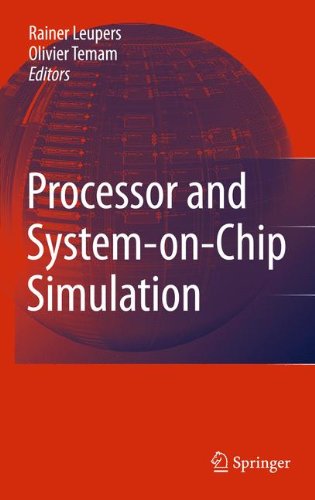

Most ebook files are in PDF format, so you can easily read them using various software such as Foxit Reader or directly on the Google Chrome browser.
Some ebook files are released by publishers in other formats such as .awz, .mobi, .epub, .fb2, etc. You may need to install specific software to read these formats on mobile/PC, such as Calibre.
Please read the tutorial at this link: https://ebookbell.com/faq
We offer FREE conversion to the popular formats you request; however, this may take some time. Therefore, right after payment, please email us, and we will try to provide the service as quickly as possible.
For some exceptional file formats or broken links (if any), please refrain from opening any disputes. Instead, email us first, and we will try to assist within a maximum of 6 hours.
EbookBell Team

4.4
22 reviewsProcessor and System-on-Chip Simulation Edited by: Rainer Leupers Olivier Temam The current trend from monolithic processors to multicore and multiprocessor systems on chips (MPSoC) with tens of cores and gigascale integration makes hardware architecture and software design more and more complex and costly. Therefore, simulation technology has become an extremely important pre-silicon verification and optimization vehicle. Simulation of computer architectures has made rapid progress recently. The primary application areas are hardware/software performance estimation and optimization, as well as functional and timing verification. Recent, innovative technologies, such as retargetable simulator generation, dynamic binary translation and sampling simulation have enabled widespread use of processor and system-on-chip (SoC) simulation tools in the semiconductor and embedded system industries. This book presents and discusses the principle technologies and state-of-the-art in high-level architecture software simulation, both at the processor and the system-on-chip level. • Presents state-of-the-art and future trends in processor and SoC simulation; • Demonstrates how simulation helps to boost hardware and software design productivity; • Addresses simulation requirements and technologies in the multicore context; • Covers system aspects, such as virtual platforms, bus simulation, caches, power, and design space exploration.